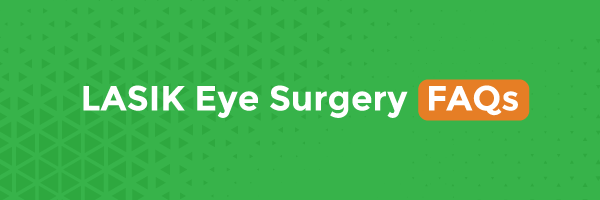DISCLAIMER! The information on this website is general information. Please discuss with your surgical provider your concerns and questions about the procedure. Your personal health information may differ from the information presented here.
Portland LASIK Eye Surgery
LASIK eye surgery is a corrective vision surgery which can help treat refractive errors including nearsightedness, farsightedness, and astigmatism. The procedure involves reshaping the cornea so that light can focus on the retina in the back of your eye, as it should. LASIK is one of the most popular elective surgeries out there, and for good reason; many studies have found satisfaction rates as high as 98% among patients.
Our LASIK eye surgery specialists at Legacy Devers Eye Institute–Laser Vision Services can help determine if this procedure is right for you and answer any questions you may have. We’re here to support you on your journey to clearer vision, so reach out to us when you’re ready to get started.

Learning About LASIK
As described above, LASIK is a laser treatment used to correct vision and reduce patients’ need for glasses or contact lenses, sometimes called corrective eye surgery for refractive errors. The procedure works by changing the shape of the cornea in order to improve your vision. Impressively, the chance of having a vision-reducing complication after this procedure is less than 1 percent. Furthermore, 90 percent of patients are legal to drive the following day. To learn more about LASIK, keep reading and then contact our experienced team for more information.

PRK vs LASIK
LASIK and PRK are both surgical techniques that use precise excimer laser energy to alter the refractive status of the eye. The key difference in these procedures is where the excimer laser energy is applied. Both LASIK and PRK use the same excimer laser to reshape the cornea, but the primary difference is that the tissue removal occurs under a flap with LASIK and on the surface of the cornea with PRK.
Generally speaking, PRK avoids having to make a LASIK flap, which leaves a greater part of the cornea unaffected by the surgery. This is important for patients who have a thinner corneas. However, the recovery time can be longer. Your eye doctor can help determine which type of procedure is best for you.
What are the advantages of LASIK?
- There is very little discomfort both during and after the operation
- Recovery of vision is rapid, and many people have useful vision within one day of surgery
- If the outcome of the initial procedure does not meet your and our expectations, then often we can perform a retreatment. This is after at least three months after surgery and consists of either re-lifting the flap or performing a treatment on the surface (like PRK)
What are the disadvantages of LASIK?
- BecauseLASIK involves cutting a flap, it involves surgery that is deeper into the layers of the cornea. This could excessively weaken corneas of patients with thin corneas.
- The creation of the flap cuts corneal nerves and can increase dry eye symptoms in patients who are predisposed to this problem.
What are the advantages of PRK?
- PRK avoids having to make a LASIK flap. This leaves a greater portion of the cornea untouched by surgery, which is particularly important in patients who have thinner corneas.
- There appears to be more rapid recovery of corneal nerve function which may minimize the amount of dry eyes after the procedure
- If eye trauma were to occur following laser refractive surgery, there is less risk of complications with PRK than with LASIK. With LASIK, the flap can, in very rare instances, become elevated or partially dislodged if the eye is struck with significant force at a certain angle and with a certain size object. This is not possible with PRK, as there is no flap. In PRK, the trauma may cause a surface abrasion, but without a flap, the abrasion would be the same as in an eye that has never had laser surgery.
What are the disadvantages of PRK?
- There can be some moderate eye discomfort for the first few days following PRK. It may take several days for visual recovery with good vision requiring 7-10 days, or in rare cases even longer depending on the extent of the treatment. Most patients are able to drive and return to work with 3-6 days after PRK, although this can vary depending on each individual case.
- As in LASIK, if the outcome of the original treatment does not meet your and our expectations, re-treatment can be performed. PRK would be performed for retreatment.
- PRK requires longer post-operative eye drops for up to 2 months after surgery. The purpose of these drops is to minimize the risk of development of haze in the cornea after the procedure.
How do we decide which procedure to recommend to our patients?
- The decision to perform either LASIK or PRK is very individualized per patient. Many factors will be examined during your comprehensive examination with your physician including the degree of treatment, the thickness of the cornea, the shape of the cornea, and the status of dryness of the eye. Your physician will recommend the best and safest option for your individual eye.

Preparing for LASIK Surgery
Before moving forward with LASIK, your eye doctor will need to perform a thorough eye exam and assessment to determine if you are a good candidate for the surgery. If you wear contact lenses, you will probably be advised to stop wearing them and switch to eyeglasses for up to several weeks prior to this assessment, because they can change the shape of your cornea even after you stop wearing them. Your doctor should discuss the risks, benefits, and alternatives, as well as what to expect and how else you should prepare for the procedure. It’s commonly advised to stop using makeup, perfumes, and lotions the day before surgery, as these can increase the risk of infection.

Understanding the Procedure
The LASIK surgery itself is quick and painless; the procedure typically takes no more than 30 minutes and you’re usually able to go home shortly afterwards. Numbing eye drops will be placed in your eye to minimize any discomfort, and you may be given a sedative to help you relax. The ophthalmologist will use a tool to keep your eye open, make an incision to access the cornea, and then use a programmed laser to precisely reshape your cornea. Throughout this process, you will be asked to stare at a light to help keep your eye steady. If you need LASIK for both eyes, the doctor will most likely perform the surgeries on the same day, one after the other.

LASIK Recovery Time
After the LASIK procedure, be sure to listen to and follow your eye doctor’s instructions carefully. They may prescribe lubricating eye drops and give you a protective covering to wear at night. You may experience some itching, light sensitivity, tearing, or discomfort immediately following the procedure, though this should last no more than 24 hours or so. You will be able to see afterwards, but it can take a few weeks for your vision to fully clear up. Overall, most patients are clear to drive 24 hours after the surgery, though this varies depending on several factors. You will have periodic post-op appointments with your doctor to monitor the recovery process.

Portland LASIK Eye Surgery Cost
The average cost of LASIK surgery performed in the United States in 2019 was $2,246 per eye. However, the actual price will depend on several factors, including your location, the experience of the surgeon, the type of procedure, and the technology used. Because LASIK is an elective surgery, it’s not always covered by insurance, though you should check with your eye doctor and insurance provider to be sure. Fortunately, there are financing options available in the United States to help cover the cost of LASIK surgery. Also, many eye care practices offer special discounts or in-house, no-interest financing options.

LASIK Eye Surgery FAQs
How Does LASIK Work?
LASIK surgery is a procedure that uses a laser to reshape the cornea to enable light entering the eye to be properly focused onto the retina, resulting in clearer vision.
Does Insurance Cover LASIK?
Because the surgery is elective, insurance does not always cover the cost of LASIK surgery. However, there are many financing options available if the out-of-pocket cost is too high.
How Long Does LASIK last?
For most people, the results of LASIK last for more than ten years. However, this depends on whether you have any progressive eye conditions and how old you are when the procedure is performed. It is normal for vision to decline with age, even after LASIK.
How Old Do You Have to Be to Get LASIK?
LASIK is FDA-approved for people of 18 years or older. LASIK is not approved for children because eyes tend to keep developing and changing into early adulthood.
How Long Does LASIK take?
The LASIK procedure itself is very quick, usually taking less than 15 minutes or so for each eye.
How Safe is LASIK?
LASIK is considered a safe and effective surgical procedure with extremely low risk of complications and a high patient satisfaction rate. As with any surgery though, there are some risks to take into account. Take time to talk these over with your eye doctor.
What Does LASIK Feel Like?
Numbing eye drops will be applied before the LASIK procedure to reduce any feelings of discomfort. You may feel some pressure for a short period of time, but you should not experience any pain.
What LASIK Complications May Arise?
The risk of LASIK complications is very small, but you should still be aware of them. They include but are not limited to: dry eyes, undercorrections, overcorrections, astigmatism, flap problems, regression, and vision changes.
What Areas Do You Serve?
NW Cornea Institute provides LASIK and laser vision services to the following cities and more:
- Portland, OR
- Tualatin, OR
- Vancouver, WA
- Beaverton, OR
- Hillsboro, OR
- Tigard, OR
- Oregon City, OR
- Gresham, OR
- Lake Oswego, OR
- West Lynn, OR
- Wilsonville, OR
- Milwaukie, OR
- Troutdale, OR
- Forest Grove, OR
- Happy Valley, OR
- Sherwood, OR
- And surrounding areas!
World-Class Portland Oregon LASIK and PRK Specialists

NW Cornea Institute experts use the IntraLASIK laser technology for performing the first step of the LASIK procedure, providing more accurate and more predictable results than the traditional method. IntraLASIK technology is considered so safe and effective that it’s used by NASA for astronauts and by the U.S. military for combat forces.
At Legacy Devers Eye Institute–Laser Vision Services, iLASIK surgery is performed by ophthalmologists who are also fellowship-trained cornea specialists. Trained corneal specialists do all the screening before and after the surgery. Download a brochure about iLASIK.
For more information on these procedures, please contact Christina Kelley, LASIK surgery coordinator, at 503-413-6540.
For general information about surgeries to correct vision, go here.